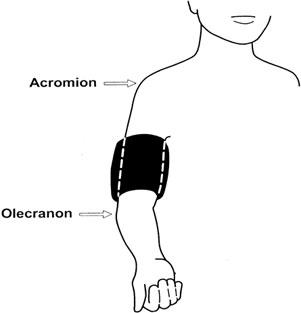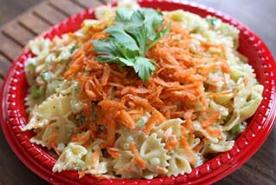High blood pressure is common in kids with CKD and can worsen the condition. Early detection and treatment are crucial. Learn more about managing blood pressure in children with CKD.
High blood pressure is common in children with chronic kidney disease (CKD). Because of their young age when they develop CKD and high blood pressure, there is a high risk that these children may eventually have heart problems and a worsening of CKD. It is very important for children with CKD to be checked for high blood pressure. Early detection and treatment of high blood pressure helps to reduce the chance of these complications. This fact sheet is written for parents of children with CKD. The booklet will tell you what you need to know about detection and treatment of high blood pressure in your child.
What is chronic kidney disease?
Chronic kidney disease means that the kidneys have been damaged by diseases such as the ones listed in the next question. As a result, the kidneys are less able to do the following jobs to help maintain health:
- Remove wastes and extra fluid from the body
- Release hormones that:
- control blood pressure
- prevent anemia (low blood count)
- promote strong bones
- Make hormones that promote normal growth and development in children
- Keep the right balance of important chemicals in the blood, such as sodium, potassium, phosphorus and calcium.
- Maintain the body’s balance of acids and bases.
When the kidneys are not working well, wastes can build to high levels in the blood, causing symptoms such as swelling of the hands and feet, nausea and vomiting, fatigue and poor appetite. Complications may develop such as high blood pressure, anemia, weak bones, poor nutritional health, growth failure and nerve damage. Kidney disease also increases the chance of developing heart and blood vessel disease. These problems may happen slowly over a long period of time, often without symptoms. CKD may eventually lead to kidney failure and require dialysis or a kidney transplant to maintain life. Early detection and treatment may help to keep CKD from getting worse and prevent its complications.
What causes CKD in adults and children?
In adults, the major causes of CKD are diabetes and high blood pressure. At present, these are not major causes of CKD in children. However, diabetes and high blood pressure are increasing among children, mostly because growing numbers of children are overweight. Being overweight greatly increases the risk of developing serious health problems like diabetes, high blood pressure, high blood cholesterol and CKD. Currently, the major causes of CKD in children include:
- Problems in the urinary tract that block the normal flow of urine
- Inherited diseases such as polycystic kidney disease (PKD), which causes fluid-filled pouches to form in the kidneys and enlarge over time
- Conditions that damage the filtering units of the kidneys (the glomeruli) such as focal segmental glomerulosclerosis (FSGS)
- Hemolytic uremic syndrome (HUS), a disease that affects both the blood and blood vessels. Kidney failure may occur as a result of damage to small blood vessels in the kidneys. HUS may also affect other organs such as the heart and brain.
What causes high blood pressure in children?
As in adults, high blood pressure is more common in children who:
- Are overweight
- Have a family history of high blood pressure
- Have CKD.
When a child has high blood pressure, the doctor should check for kidney diseases (such as the ones listed earlier) as a possible cause of high blood pressure.
How are high blood pressure and CKD related?
High blood pressure is a leading cause of CKD in adults and contributes to the worsening of CKD in children. High blood pressure can also be a complication of kidney disease. The kidneys play a key role in keeping blood pressure in a healthy range. If your child’s kidneys are damaged, they are less able to help regulate blood pressure. As a result, the child’s blood pressure increases and CKD gets worse. Making sure your child’s treatment plan is followed carefully and his/her blood pressure is controlled can help keep kidney disease from getting worse and prevent heart disease.
How should my child’s blood pressure be checked?
Your child’s blood pressure should be measured with a blood pressure cuff that is the right size for the child’s age and size. Different size cuffs are available for measuring blood pressure in children. In some cases, the doctor may want to do ambulatory monitoring of the child’s blood pressure, which means the pressure will be measured over a period of time while the child goes about normal daily activities. Special equipment is available for measuring blood pressure in newborns and infants.
Figure: Finding the correct cuff size for measuring a child’s blood pressure. The cuff bladder should cover 80% to 100% of the circumference of the arm.

What do the numbers in a blood pressure reading mean?
As in adults, children’s blood pressure is read as two numbers. The top number, or systolic blood pressure, is the pressure when the heart is pumping blood around the body. The bottom number, or diastolic blood pressure, is the pressure when the heart is resting between beats. A blood pressure of 130/80 is read as 130 over 80.
When is blood pressure too high in a child?
Normal blood pressure is lower in children than in adults. Blood pressure increases with age and body size. Normal blood pressure for your child will depend on the child’s age, gender and height. The doctor will compare your child’s blood pressure to charts listing normal blood pressure ranges for boys and girls based on their age and height. A diagnosis of high blood pressure should be based on at least two readings taken at three separate visits to the doctor. Ask the doctor what your child’s blood pressure reading is and whether this is considered too high.
What are the goals of treating my child’s blood pressure?
The goals of treating high blood pressure in your child are:
- To reduce blood pressure
- To prevent your child’s kidney disease from getting worse
- To prevent heart and blood vessel disease.
The child’s blood pressure should be reduced to a normal level for the child’s gender, age and height, or to less than 130/80, whichever is lower. Ask your child’s doctor to tell you what his/her target blood pressure number should be.
What type of treatment will my child have for high blood pressure?
Your child’s treatment may include making lifestyle changes and taking medications. (See next question for examples of lifestyle changes.) A doctor who has special training in kidney disease and high blood pressure in children should be involved in your child’s care.
What kinds of lifestyle changes will my child need to make?
Your child’s doctor may recommend the following steps:
- Lose weight if your child is overweight. Being overweight makes the child more likely to develop other serious health problems such as diabetes and heart disease and can make existing high blood pressure worse.
- Cut back on table salt and salty snacks. (Before recommending this step, your doctor should make sure the child does not have a type of kidney disease that causes the body to lose salt.)
- Avoid substances that can raise blood pressure such as tobacco, caffeine and medications that caution against use if you have high blood pressure.
- Get regular exercise that is appropriate for the child’s age and medical condition. Increasing physical activity not only helps to reduce blood pressure, but it can help a child who is overweight reach and maintain a healthy weight. Sports and exercise programs at school may be good ways to increase the child’s activity level. It’s important to speak to the child’s doctor before he/she begins any exercise program.
What about medications?
In deciding what blood pressure medications are best for a child with CKD, the doctor will consider:
- The type of kidney disease the child has
- The child’s age and size
- The child’s ability to swallow a pill.
There are many blood pressure medicines available. Many of them have been tested on children. Among these, your child’s doctor may prescribe a type of blood pressure pill called an angiotensin converting enzyme (ACE) inhibitor or an angiotensin receptor blocker (ARB). Some studies have suggested that these medications may help to protect kidney function. If your child has salt and water retention, diuretics (water pills) may also be prescribed. Other types of blood pressure medications, such as beta-blockers, clonidine and calcium channel blockers, may also be chosen as the first line medication to be used in combination with the other medications. Most children with high blood pressure and CKD will require more than one medication. The dose of any medication your child receives must be adjusted for the child’s age and weight.
How often should my child’s blood pressure be checked?
Your child’s blood pressure should be checked every time you visit the child’s doctor. Parents can learn to take the child’s blood pressure at home, or ask the nurse at school to check it. It’s helpful to keep a record of the child’s daily blood pressure and show this to the doctor at each visit. When doing this, it is vitally important to be honest when recording the blood pressure measurement. It does not help to record what you think the doctor would like to see; you must record what you actually measure.
Will my child need other tests?
At follow-up visits, the doctor may do some additional tests to check the kidneys. These may include:
- Glomerular filtration rate, or GFR, which tells the doctor how well the child’s kidneys are working. GFR can be calculated from the results of a simple blood test for creatinine, a waste from muscle activity. When the kidneys are not working well, creatinine builds up to high levels in the blood.
- Urine protein level. A higher level of protein in the urine means there is an increased chance that your child’s kidney disease may get worse and that heart and blood vessel disease may develop. Treating high blood pressure may help to reduce your child’s urine protein level.
What else can I do to help my child?
- If your child is overweight, it’s very important for the child to lose weight. You can help by preparing meals that have the right amount of calories to meet your child’s needs. Ask your doctor to refer you to a registered dietitian for help in planning meals and snacks.
- Speak to your child’s doctor about an exercise program that is right for the child.
- If the doctor prescribes blood pressure pills for your child, make sure he/she takes them exactly as prescribed. Report any side effects to your doctor right away.
What if I have more questions?
Speak to your child’s doctor and to other members of the health care team. You may also find the following resources from the National Kidney Foundation helpful.
- Nutrition for Children With Chronic Kidney Disease: A Guide for Parents—General information about the proper diet to help your child do well.
- Keep Sodium Under Control: How to Spice Up Your Cooking—If a low-salt diet is recommended, this booklet gives you tips about cooking with less salt.
- You can also learn more about high blood pressure at the Web site of the Pediatric Hypertension Association at www.pediatrichypertension.org
For more information about kidney disease in children click here.
Key points to remember
- High blood pressure is common in children with CKD.
- High blood pressure increases the chance that kidney disease will get worse and that heart and vascular disease will develop.
- If your child has CKD, it’s important to have the child’s blood pressure checked.
- Blood pressure should be measured with a cuff that is the right size for the child.
- Normal blood pressure is lower in children. To determine whether your child’s blood pressure is high, the doctor will compare his/her reading with charts that list normal ranges for children based on gender, age and size.
- A doctor who specializes in treating CKD and high blood pressure in children should be involved in your child’s care.
- Treatment for high blood pressure may include taking medications and making lifestyle changes, such as following a healthy diet, losing weight and exercising regularly. Cutting back on salt may also be recommended.
- The dose of any medication prescribed for your child should be adjusted for the child’s age and size.
If you would like more information, please contact us.
© 2015 National Kidney Foundation. All rights reserved. This material does not constitute medical advice. It is intended for informational purposes only. Please consult a physician for specific treatment recommendations.

















